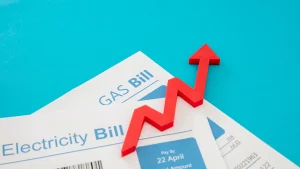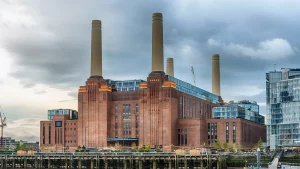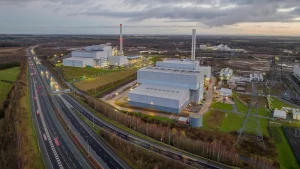Understanding how commercial energy prices are calculated can be a complex task, but it’s crucial for businesses to make informed decisions about their energy contracts. By breaking down the key factors that influence pricing, you can gain a better understanding of your energy costs and potentially reduce them.
Key Factors Affecting Commercial Energy Prices
Several factors contribute to the fluctuating prices of commercial energy in the UK:
- Global Energy Market: Global energy markets, particularly for natural gas and oil, significantly impact wholesale energy prices. Supply and demand dynamics, geopolitical events, and economic conditions can all influence these prices.
- Supplier Costs: Energy suppliers incur various costs, including purchasing energy from the wholesale market, transportation, and distribution. These costs are passed on to consumers, affecting the final price.
- Government Policies and Taxes: Government policies, such as carbon taxes and renewable energy subsidies, can impact energy prices. Changes in government regulations can also affect the overall cost of energy.
- Supplier Profit Margins: Energy suppliers aim to make a profit, which can influence the prices they charge to customers. Competition among suppliers can help to keep prices in check.
How Commercial Energy Prices Are Calculated
While the exact calculations can vary between suppliers, a simplified breakdown involves the following steps:
- Wholesale Energy Cost: The cost of purchasing energy from the wholesale market.
- Supplier Costs: Additional costs incurred by the supplier, such as transportation, distribution, and administrative fees.
- Government Charges: Taxes, levies, and other government-imposed charges.
- Supplier Profit Margin: The profit margin the supplier aims to achieve.
The final price you pay is a combination of these factors. It’s important to note that energy prices can fluctuate throughout the year, influenced by seasonal demand, weather conditions, and global events.
Tips for Managing Commercial Energy Costs
- Regularly Review Contracts: Ensure your contract terms are competitive and renegotiate when necessary.
- Consider Fixed-Price Contracts: Lock in a fixed price for a specific period to protect against price fluctuations.
- Implement Energy-Efficient Measures: Reduce energy consumption through energy-saving technologies and practices.
- Switch Suppliers: Regularly compare offers from different suppliers to find the best deals.
- Utilize Government Incentives: Take advantage of government schemes and grants to reduce energy costs.
By understanding the factors that influence commercial energy prices and implementing effective strategies, businesses can manage their energy costs and contribute to a more sustainable future.
Fixed vs. Variable Tariffs: Which is Right for Your UK Business?
Choosing the right energy tariff is a critical decision for any UK business. Two primary options exist: fixed and variable tariffs. Each comes with its own set of advantages and disadvantages, so it’s crucial to understand the differences before making a choice.
Fixed Tariffs: A Steady Hand
With a fixed tariff, you lock in a specific price per unit of energy for a set period, typically 12 or 24 months. This provides stability and predictability, shielding your business from potential price fluctuations in the wholesale energy market.
Advantages of Fixed Tariffs:
- Price Certainty: You know exactly how much you’ll pay for energy over the contract term.
- Budgeting Ease: Predictable energy costs make budgeting and financial planning simpler.
- Protection Against Rising Prices: If wholesale energy prices increase, your costs remain fixed.
Disadvantages of Fixed Tariffs:
- Missed Opportunities: If wholesale prices decrease, you won’t benefit from lower rates.
- Early Exit Fees: Switching suppliers before the contract ends may incur penalties.
Variable Tariffs: Riding the Wave
A variable tariff links your energy price directly to the wholesale energy market. This means your rates can fluctuate, reflecting changes in the market.
Advantages of Variable Tariffs:
- Potential for Lower Costs: If wholesale prices decrease, you could benefit from lower energy bills.
- Flexibility: You’re not tied to a fixed contract and can switch suppliers more easily.
Disadvantages of Variable Tariffs:
- Price Volatility: Your energy costs can fluctuate significantly, making budgeting challenging.
- Exposure to Rising Prices: If wholesale prices increase, your energy bills will rise accordingly.
Choosing the Right Tariff for Your Business
The best choice for your business depends on various factors, including:
- Risk Tolerance: Are you comfortable with potential price fluctuations?
- Budgetary Constraints: Do you need predictable costs or are you willing to take risks?
- Long-Term Plans: Consider your business’s long-term energy needs and how they align with fixed or variable tariffs.
- Market Trends: Stay informed about energy market trends and potential price movements.
By carefully considering these factors and seeking advice from energy experts, you can make an informed decision that aligns with your business’s specific needs.
Remember, it’s essential to regularly review your energy contract and consider switching suppliers if a better deal becomes available.





